|
Under the Banner of a Reunited Ireland
One of the many benefits of a reunited Ireland will be the freedom
to establish and live in a peaceful and inclusive multicultural
society, leaving behind the colonial baggage and religious dogmatism
that has weighed heavily on Irish lives and history for a thousand
years.
Introduction
When that day comes, the Irish people must be ready to take
responsibility for a reunited Ireland dedicated to freedom,
humanity, prosperity and the rule of law. How these
multifaceted responsibilities are managed will determine Ireland's standing in the
world of free nations either as 1) a nation of imaginative and
caring people or 2) a restrictive and regressive nation of haves and
have-nots.
To that end, the
following Eire Athaontaithe (Reunited Irelandís) policy initiatives
will focus on nation building and
good governance to ensure that a reunited Ireland will live up to
its potential as a free and prosperous nation where the government
is an instrument of the people and where a living wage is a reality.
One particularly important aspect of Irish life that must be
acknowledge and celebrated is Irelandís commitment to education over
these past fifty years. As a result, Ireland is blessed with a
highly educated work force that bodes well for its future as a
highly functioning and innovative society that can, under the right
leadership, handle the unique challenges its people face as citizens of a
reunited nation and a threatened planet.
A Window to the Past
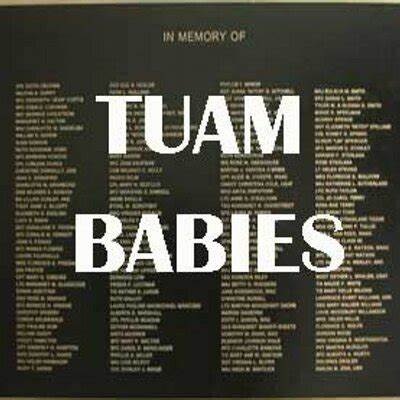 Those of us born in Ireland in the second and third quarters of the
last century would not, ever again, want to live through such a
period of dehumanization and debauchery lorded over by leaders and institutions
of the Catholic Church aided and abetted by the hands-off stance of
successive governments. Those of us born in Ireland in the second and third quarters of the
last century would not, ever again, want to live through such a
period of dehumanization and debauchery lorded over by leaders and institutions
of the Catholic Church aided and abetted by the hands-off stance of
successive governments.
In 1922 when the Irish Free state took control of the southern 26
counties, it entered into an unholy alliance with the Catholic
Church to exert joint control over the people. The promise of heaven
and the fear of hell was a powerful weapon wielded by the church to
keep an ill-informed populace in check. For the mavericks outside
its influence, the government stepped in by invoking inherited
British repressive laws and tactics to
quell political dissent and
industrial strife.
That unholy alliance set the stage for successive government
officials and church leaders to wallow in corruption, pedophilia and
inhumanity under the guise of salvation and democracy.
The ensuing
horror that festered unchecked in mother and baby homes e.g.,
the Tuam babies home, the
Magdalene laundries for so-called fallen women, reform schools and
orphanages operating by the Catholic Church is well documented in
investigative reports, victim accounts, books and documentaries,
therefore, will not be rehashed in this article. For all intent and
purposes most if not all of these gross violations of human rights
and acts of depravity were directed at vulnerable women and innocent
children. Northern Ireland was not immune from the horrors of a
similar alliance between government authorities and church leaders
of various denominations.
By the waning years of the 20th century, when the Irish
people believed they had left behind official corruption and deceit, along
came the
Celtic Tiger. The emergence of the Tiger was hailed by
many as proof of Irelandís prowess as a vibrant and progressive
nation of can do people given the right leadership.
What happened to the Tiger in 2008 belied that belief. Literally
overnight the Tiger collapsed under a mountain of bank debt and
deceit leaving believers and disbelievers alike shell shocked and in
a state of panic. Government officials, financial institutions and
regulators, billionaire businessmen, the media and yes, the judicial
system engaged in an elaborate game of subterfuge to protect the
perpetrators of the greatest financial sham in Irish history. In
the end, the banks and their billionaire investors were made whole
by the Irish government with a
Ä400bn
IMF loan underwritten by the Irish taxpayers.
Protecting our Freedoms and Rights
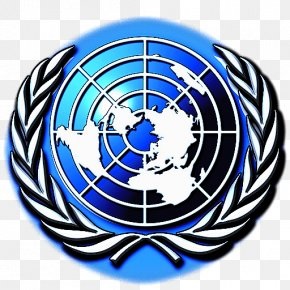 The transition to a reunited Ireland offers a rare opportunity to
strengthen the protection of our fundamental
freedoms and human rights in a new all-Ireland constitution. The
scope of these freedoms and rights must be clearly defined in
unambiguous language that cannot be amended to rescind or lessen
their scope or impact. References to universal human rights charters
included in the constitution must also be accurately described as to
how they will be incorporated and enforced in law. The transition to a reunited Ireland offers a rare opportunity to
strengthen the protection of our fundamental
freedoms and human rights in a new all-Ireland constitution. The
scope of these freedoms and rights must be clearly defined in
unambiguous language that cannot be amended to rescind or lessen
their scope or impact. References to universal human rights charters
included in the constitution must also be accurately described as to
how they will be incorporated and enforced in law.
At present, voting is a voluntary exercise in Ireland with
participation hovering around 63%. In a reunited Ireland, voting
will be a government mandate similar to existing mandates such as
jury duty, paying taxes, passing a driving test, etc.
Compulsory voting
will increase and change the composition of the electorate making it
more representative of the national mood, less partisan and less
prone to manipulation by scheming politicians or special interest
groups. The right to vote is a right and a responsibility essential
to the protection of our freedoms and our democracy and a
responsibility we must embrace.
Without effective legal, law enforcement and independent judicial
systems our constitutionally guaranteed freedoms and rights would
merely be a writing exercise. To avoid such an eventuality, we the
people must hold our elected representatives to account for enacting
laws to protect those rights and freedoms and to penalize those who
would engage in any unlawful act to do otherwise.
A
Government of the People
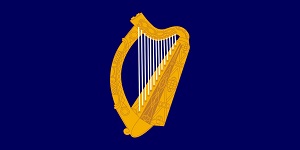 In a democracy we understand that the government is a construct of
the people entrusted with the responsibility for providing the
protections and services that we as individuals cannot provide.
These include a safe environment, infrastructure, clean air and
water, food safety, healthcare, education and myriad other services
we rely on to function effectively or navigate our way in todayís
complex world. In a democracy we understand that the government is a construct of
the people entrusted with the responsibility for providing the
protections and services that we as individuals cannot provide.
These include a safe environment, infrastructure, clean air and
water, food safety, healthcare, education and myriad other services
we rely on to function effectively or navigate our way in todayís
complex world.
We expect a lot of
our
representatives whom we entrust with that
responsibility. We expect them to function effectively in a
government comprised of a legislature, an administration, a
judiciary and a complex bureaucracy comprised of departments,
agencies, boards and commissions. Itís a daunting task and a grave
responsibility.
If we want our government to function effectively, we are duty bound
to ensure that our
representatives are trustworthy and knowledgeable and that they
understand how the government works and how to be an effective
representative. We must keep in mind that those who represent us vie
for the privilege, so like any job applicant we must deem them
qualified on their own merit to be granted that privilege. It is
not a legacy position.
Under the Eire Athaontaithe proposal, the peopleís participation in
government would be a primary objective for reasons already stated.
One of the first steps in that quest would be the establishment of
non-partisan community or parish councils manned by volunteers and
operating under the auspices of a good government watchdog. The
councils would be headed up by an elected slate of officers to
manage day-to-day operations, provide forums for community residents
to air ideas and concerns, and establish open lines of communication
with local government officials to review and respond to community
concerns.
In a second
development phase, rural based community councils would be tasked
with catering to local needs such as health emergency and accident
rescue and transport services, emergency shelter, farm safety
and fire prevention advice, library and internet services etc. Many
of these services could be provided by volunteers that would include
off-duty police and prison officers, health care workers, students
and others with skill sets across various fields of endeavor.
The required training and equipment would be provided by local
governments. Community centers would could be used as the home base.
An Equitable Society
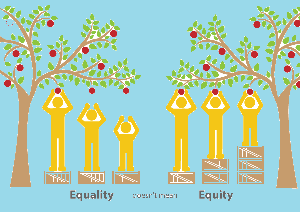 One of the greatest threats to democracy in Ireland and in most
other democratic countries is the danger posed by
income and wealth inequality.
It has spawned a class of wealthy
people that live in a world apart, a world of excess and
extravagance unimaginable to 90% of their fellow citizens. Their
concerns center on how to accumulate more wealth, where to purchase
another mansion, another private plane or super yacht or where to
relocate to for the winter months. They never seem to contemplate
when enough is enough or the danger that the accumulation of vast
fortunes by the few poses a real danger to democracy and by
extension to their lifestyles. One of the greatest threats to democracy in Ireland and in most
other democratic countries is the danger posed by
income and wealth inequality.
It has spawned a class of wealthy
people that live in a world apart, a world of excess and
extravagance unimaginable to 90% of their fellow citizens. Their
concerns center on how to accumulate more wealth, where to purchase
another mansion, another private plane or super yacht or where to
relocate to for the winter months. They never seem to contemplate
when enough is enough or the danger that the accumulation of vast
fortunes by the few poses a real danger to democracy and by
extension to their lifestyles.
At the other end of the wealth and income scale, the 40% that
constitute the poorer classes are focused on keeping a roof over
their heads and food on the table. The lack of a living wage is what
keeps them in a constant state of need and hopelessness. They are
the victims of greed and the reluctance or the inability of the
government to legislate for a living wage.
The middle class who fuels the economy are preoccupied with
providing their families with a decent quality of life. Many of them
do so with some trepidation knowing that the economy that supports
their lifestyle is highly dependent on multinational conglomerates
with no roots in or binding ties to Ireland, They are aware that a
global recession or a cessation or retrenchment of operations by
their multinational conglomerate would jeopardize their livelihood.
Providing economic opportunity and security and a living wage would
be a top priority under the Eire Athaontaithe proposal. The process
pursued would be deliberate, expansive and impact all income and
wealth classes. The existing tax code would be revised to shift more
of the burden to the wealthiest taxpayers and to impose a wealth tax
on individuals with assets worth hundreds of million or billions of
euros.
The bottom line would be a living wage for every individual and
family unit. Click on the following link to view how the living wage
is calculated in Ireland.
Microsoft Word - Living Wage 2023-24 4
page document
Environmental and Economic Sustainability
 The mantra for sustainability under the Eire Athaontaithe proposal
would be to do no further harm to the environment or to the stays of
our democracy. The mantra for sustainability under the Eire Athaontaithe proposal
would be to do no further harm to the environment or to the stays of
our democracy.
It is a generally accepted fact by responsible climatologists that
societyís insatiable demand for more and more energy to fuel our modern
lifestyles is the root causes of climate change. Up until recently
most of that energy came from fossils fuels that spewed enormous
quantities of greenhouse gases into the atmosphere.
Consequently. the buildup of these greenhouse gases slowed the
normal release of the earth's absorbed solar energy back into the atmosphere.
Renewable energy sources including solar, wind, hydro, geothermal
and bioenergy are low or nonpolluting replacements that are
presently been phased in and will continue to be going forward.
Amongst other energy reducing measures, such as insulating existing
homes, the building of energy efficient homes and the implementing
of more efficient recycling and reuse programs would go a long way
to ensure sustainability and a healthier environment.
Economic policy
would allocate more resources to home based
companies to expand their operations and increase employment, and to
entrepreneurs to operate out of Ireland. Billionaires and other
wealthy individuals would be incentivized to invest in innovative
start-up companies located in Ireland. Incentivizing
multinational companies to relocate to Ireland
would continue albeit on a more selective basis.
Agriculture is a critical area of Irelandís economy that has been
short shifted and under resourced by the government in transitioning
to a technology and finance driven economy. In 1995, the value
added to the GDP by agriculture, forestry, and fishing was 5.5%. In
2023 that number was 0.9 %. At first look one would surmise that
agriculture in Ireland is more of a hobby than a viable enterprise.
Hopefully thatís not the case and that there is a reasonable
explanation for the decline other that profitability.
Agriculture policy under the Eire Athaontaithe proposal would be
designed to ensure self-reliance and sustainability in the
production, storage and distribution of critical food supplies as a
hedge against climate change or global unrest. The production of
food for domestic consumption would be increased to reduce reliance
on imports, especially for products like the noble potatoes.
Startup resources would also be available to increase the number of
sustainable micro farms and other innovative food producing
enterprises. Designs and instructions for sustainable backyard
gardening would also be available to homeowners and others with
access to a plot of land.
European Union
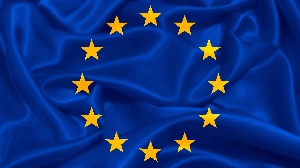 The
European Union
(EU) has been a major factor in Irish life since
1973 when Ireland joined the European Common Market, the precursor
to the EU. It has been responsible for Irelandís emergence from
economic stagnation and moral fatigue brought about by the lingering
legacy of government corruption and church
decadence.
The EU has generally been a force for good, responsible for the
transfer of wealth from wealthier to poorer countries throughout
Europe including Ireland, an undertaking that raised the standard of
living for hundreds of thousands of people. The
European Union
(EU) has been a major factor in Irish life since
1973 when Ireland joined the European Common Market, the precursor
to the EU. It has been responsible for Irelandís emergence from
economic stagnation and moral fatigue brought about by the lingering
legacy of government corruption and church
decadence.
The EU has generally been a force for good, responsible for the
transfer of wealth from wealthier to poorer countries throughout
Europe including Ireland, an undertaking that raised the standard of
living for hundreds of thousands of people.
The construction of the motorways in Ireland and the influx of
multinational companies are directly attributable to the EU as was
the advent of running water, cleaner air, adequate sewer disposal
and other quality of life services in urban areas.
Over time the EU has ballooned into a monolithic bureaucracy that
has the authority under EU law to force compliance of its directives
by recalcitrant member states. Ireland has been the subject of
such enforcement procedure as the result of its foot-dragging in
complying with EU directives regarding the protection of the
environmental, ecosystems and habitats from pollution, human
intrusion and expansion.
Under the Eire Athaontaithe proposal a reunited Ireland government
would
support a comprehensive review of EU operation to ensure that is not
overreaching or going off the rails to expand its authority over
member states. The danger is that too many EU directives are
replacing or overriding political decisions and laws that rightfully
belong to member states.
A Realistic World View
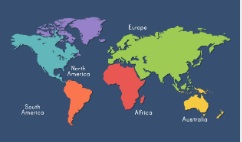 We live in unsettled times where corrupt world powers and
expansionist minded regimes led by authoritarian leaders and
psychopaths, invade, occupy and
annex neighboring lands to resurrect a lost empire or lay claim to
biblical promised lands. Such blatant acts of aggression are
inhuman and unjust and threatens world peace and human annihilation. We live in unsettled times where corrupt world powers and
expansionist minded regimes led by authoritarian leaders and
psychopaths, invade, occupy and
annex neighboring lands to resurrect a lost empire or lay claim to
biblical promised lands. Such blatant acts of aggression are
inhuman and unjust and threatens world peace and human annihilation.
Under the Eire Athaontaithe proposal, a reunited Ireland would
always be on the side of decency, and as such would lend support to
the victim nations of aggression and to their displaced or
dispossessed innocent victims. It would be vocal in its
condemnation of aggressors irrespective of who they are and would
join with other like-minded nations in imposing meaningful sanctions
and extending humanitarian aid and refuge to the victims.
It would be remiss for Ireland to do otherwise in light of its own
tortured history at the hand of its former occupier. Ignoring the
plight of present day victims of aggression would be akin to
ignoring the plight of tens of millions of dispossessed Irish men,
women and children who were forced to flee their homeland and seek
refuge in other lands around the world. Forgetfulness or complacency
would not be hallmarks of a reunited Ireland.
Conclusion
A reunited Ireland must be worthy of the suffering and sacrifices of
the millions of our ancestors who fought, toiled and died for basic
human rights and liberty. Nothing less than the realization of the
ideals and aspirations for a reunited Ireland as set forth on this
website would do them justice. The mark of their tormentor in any
reunited Ireland scenario would be a profanity.
Contributed by TMMTP |
